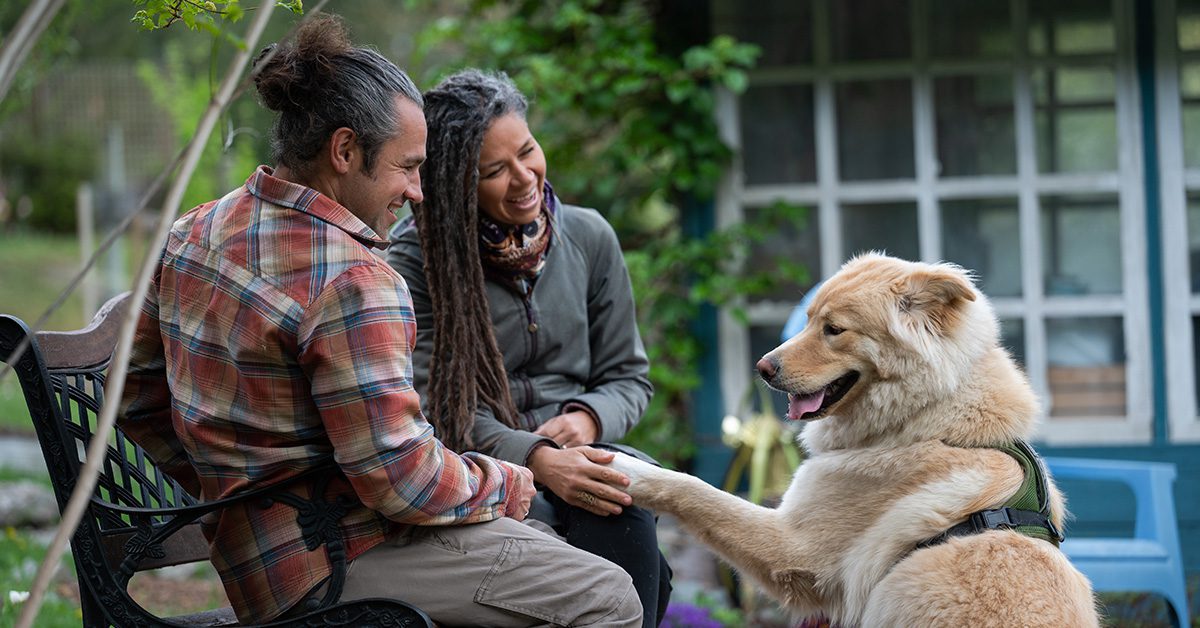About animal fostering
You provide love, care and a temporary home to foster animals, and we provide the food, supplies, and medical care they need. This is a flexible volunteer opportunity and foster placements can range from a few days to a few months.

Some important things you should know:
- Fosters, or lead fosters in a family, must be 19+ years of age and have housing where pets are permitted.
- BC SPCA foster animals can be fearful, have complex medical needs, or require specific behavioural support. Our training will prepare you and we’re here to support along the way!
- Fostering makes a direct impact on animals in need, can bring joy to volunteers, and strengthen family bonds. It’s also a great way to gain valuable skills for future careers in animal care.
Is fostering with the BC SPCA Right for You?
1. Watch the video
2. Take the quiz
 This 10-question quiz is here to help you assess whether or not fostering with the BC SPCA is the right volunteer role for you.
This 10-question quiz is here to help you assess whether or not fostering with the BC SPCA is the right volunteer role for you.
START NOW
Please note this quiz will open in a new tab or window.
3. Join our fostering team
 The BC SPCA is always looking for dedicated people to help animals in need. There are a variety of programs for fostering animals across BC.
The BC SPCA is always looking for dedicated people to help animals in need. There are a variety of programs for fostering animals across BC.
APPLY HERE
Please note this button will open in a new tab or window.
Frequently asked questions for foster candidates
Preparing your home for a foster animal
Yes, if all your own pets are spayed/ neutered (if applicable), have up-to-date vaccinations and parasite control prevention. These measures help prevent illness and accidental litters.
If your own pets get sick from your foster animals, the BC SPCA will not cover their medication costs or vet visits.
From time to time, foster animals need to be separated from your own pets. The BC SPCA would provide guidance on how to do so when this happens.
Finally, you should consider the stress resident pets may feel from sharing space with foster animals. Even if they cannot see one another, they might get stress from smelling or hearing one another. Our team can assist with facilitating gradual introductions to reduce the stress on both foster animals and resident pets.
Yes, but you will need permission from your landlord. Check out the BC SPCA’s renter’s guide for resources that might help you.
Fostering is a great way to help animals, but it’s important for everyone in your household to know what to expect and how an animal in the home would affect them.
All animals, including foster animals, can be a little messy. They might spill food or water, chew on furniture or shoes, or have accidents if they are not house trained yet. The BC SPCA can help you avoid or minimize damage that comes with animal care but will not replace or reimburse for damaged items.
Many foster animals need a calm and quiet home. Loud noises or lots of visitors can make them feel scared or stressed. If your home is usually busy or noisy, the BC SPCA can help you decide if fostering is right for you or place you with the best animal for your home, such as young puppies and kittens who are being socialized and will thrive in that type of environment.
Fostering is a wonderful experience for the whole family. It teaches kindness, patience, and how to care for animals in need. The BC SPCA will give you all the help and support you need to make fostering a success!
Foster animals need a safe, clutter-free space in your home to sleep, play, and recover. This space should have enough room for essentials such as a pet bed, litter box (if needed), food and water dishes, and space to sleep and play. Ideally, this space has easy-to-clean floors, like tile or laminate to help prevent spreading disease between animals or to humans.
Make sure to remove dangerous items, such as cleaning supplies, medications, food or plants toxic to animals, and store them in a safe place. If you’re using a bathroom or spare room, be sure to remove breakables, close the toilet lid, tuck away cords, and check for other common hazards.
For a mom and her babies, or for an animal recovering from illness or injury, a dedicated “foster room” is required. This space should have natural light, a door that closes, and easy-to-clean floors to create a safe and supportive environment for the animal.
If you plan on fostering dogs, it is not necessary to have a fenced yard in all cases.
Ready to join our animal fostering team?
APPLY HERE
Please note this button will open in a new tab or window.
